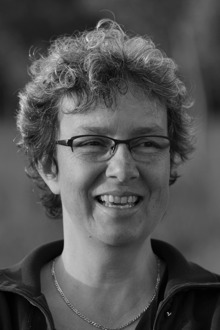Frau Marianne Steiner-Gygli, Sie leiten in Aarau die Fachstelle Suchtprävention Aargau. Welchen Stellenwert hat Qualitätsentwicklung für Sie und ihre Organisation?
Wir arbeiten seit 2008 mit dem EFQM Modell. EFQM sieht die Qualitätsentwicklung als eine Interaktion zwischen Menschen, Prozessen und Ergebnissen: Menschen arbeiten in Abläufen und erzielen Ergebnisse für andere Menschen!
Die Qualitätsentwicklung hat in der Suchtprävention Aargau einen sehr hohen Stellenwert. Sie durchdringt sämtliche Arbeitsbereiche und bewirkt motivierende Rückmeldungen der Kundinnen und Kunden. Sie ist ein laufendes, lebendiges Thema im Alltag.
Was unternehmen Sie konkret, um die Qualität Ihrer Projekte zu sichern und weiter zu entwickeln? Welche Rolle spielt dabei quint-essenz?
Wir arbeiten in allen Bereichen mit auswertbaren, sinnvollen und für uns als Mitarbeitende interessanten, herausfordernden und reizvollen Zielen. Das heisst es gibt Jahresziele für die Stelle, die Bereiche, die Projekte, für Zielgruppen und persönliche Ziele für die Mitarbeitenden.
Die Ziele und die dahinterliegenden Prozesse sind auf die angestrebten Schlüsselergebnisse ausgerichtet. Diese sind: Unseren Kundinnen und Kunden Handlungsanleitungen und Informationen geben und längerfristige Präventionsprozesse in Organisationen und Gemeinwesen in Gang bringen.
Meine Führungsinstrumente (Sitzungen, Retraiten, Wissensmanagement, Weiterbildungen, Beurteilungsgespräche, etc.) sind so gestaltet, dass die Frage nach den Schlüsselergebnissen immer wieder präsent ist. Qualität ist ein Alltagsthema geworden, eine Selbstverständlichkeit.
Das Wissensmanagement spielt dabei eine wichtige Rolle. Es ist zwar klar auf Papier dargestellt, ist aber eigentlich eine Art der Zusammenarbeit und des Feedbacks, ein Fliessen und sich Verbinden von dem, was sich in den Köpfen von uns abspielt. Dies unterstützt die Sicherung und Weiterentwicklung der Qualität.
Wir haben intern unsere eigenen Projekttools entwickelt, ganz stark an quint-essenz angelehnt. Sie kommen in Bezug auf den Prozess „Projekt“ zur Anwendung. Das Projektmanagementtool auf quint-essenz ist für uns etwas zu schwerfällig und es braucht zuviel Zeit, sich durch alles durch zu klicken. Man braucht auch viel Zeit um die Ausdrucke so umzugestalten, wie wir sie brauchen. All unsere Angebote verfügen über Konzepte und Abläufe, die sich an den Grundlagen von quint-essenz orientieren. Wir haben somit quint-essenz in EFQM integriert und darauf abgestimmt.
Inwiefern lohnt sich der Aufwand für die Qualitätsentwicklung? Worin besteht der Nutzen für Ihre Organisation und Ihre Projekte?
Die Qualitätsentwicklung fordert heraus und rüttelt auf. Das ist toll, das dynamisiert und führt zu interessanten Gedanken und Lösungsoptionen. Wir lernen viel dabei, was motivierend wirkt. Wir steuern das Ganze so, dass der Nutzen im Alltag Erleichterung bringt, auch wenn die Erarbeitung mühsam ist. Die Arbeit mit Schlüsselergebnissen gibt klar Orientierung. Was nicht den Schlüsselergebnissen dient, macht keinen Sinn. Der Aufwand – anfangs war er gross – lohnt sich dann, wenn es gelingt, Qualität zu einem selbstverständlichen Teil des Arbeitsalltags werden zu lassen, begleitet von gezielten Vertiefungen einzelner Aspekte.
Was würden Sie Verantwortlichen anderer Fachstellen in der Prävention und Gesundheitsförderung im Hinblick auf Qualitätsentwicklung empfehlen?
Die Qualitätsentwicklung muss so installiert und umgesetzt werden, dass das Team sich gerne darauf einlässt. Die Instrumente des Qualitätsmanagements sollten erklärbar und so auswertbar wie möglich sein. Am wichtigsten scheint mir jedoch, dass Qualität zu einem Alltagsthema wird, zu einer Sache, die den Ehrgeiz anstachelt, die zu Diskursen und Auseinandersetzungen führt, zu Freude und Stolz an den eigenen Leistungen und den Leistungen als Team.


